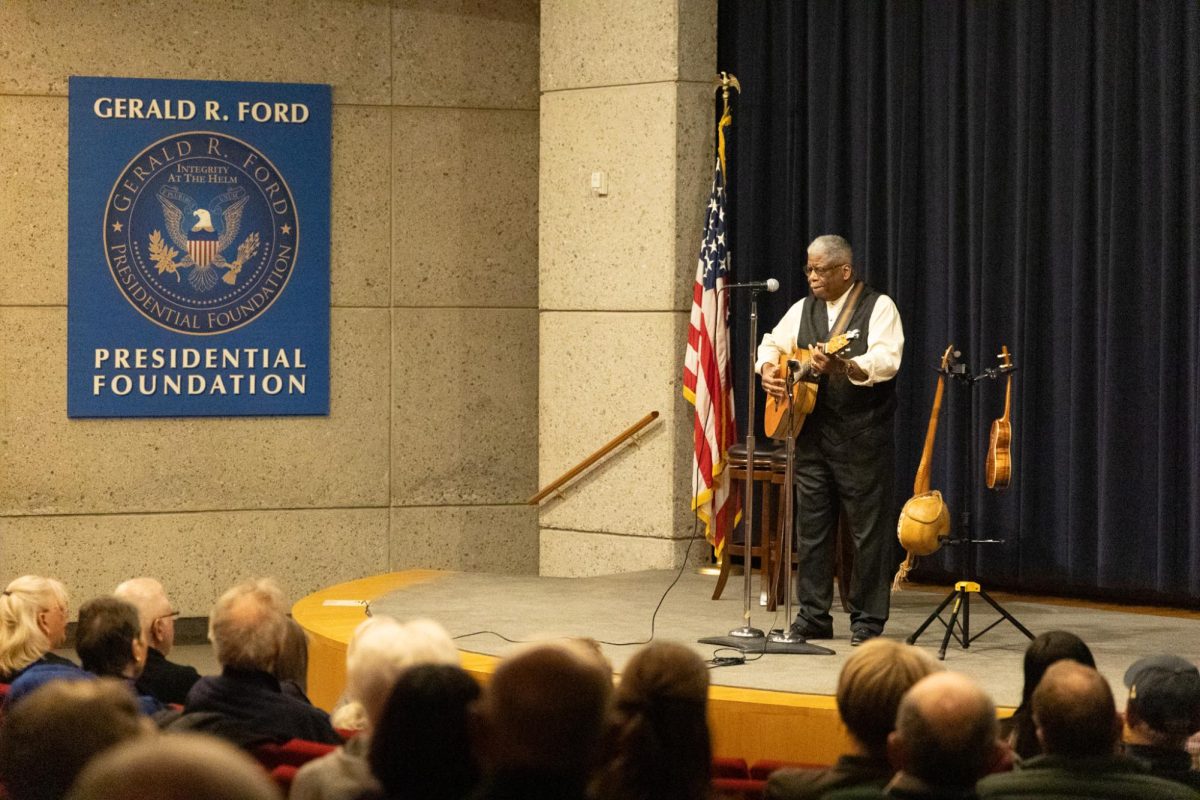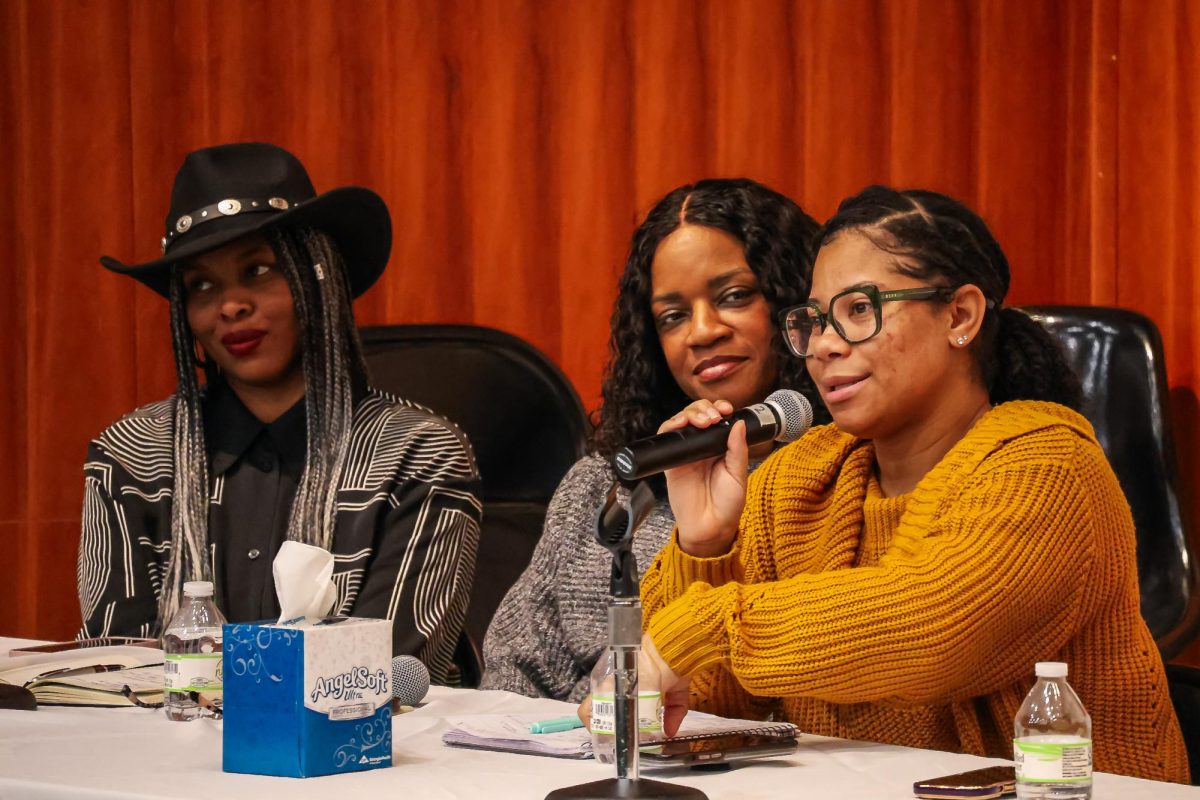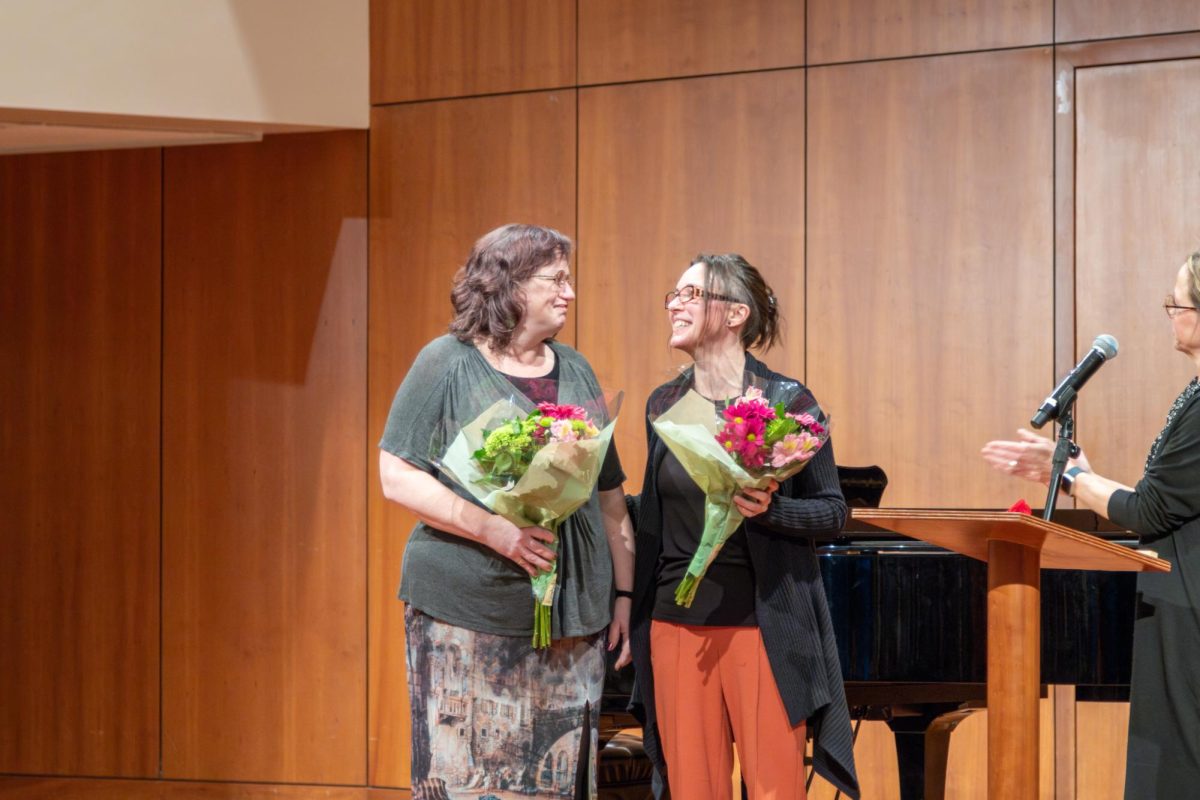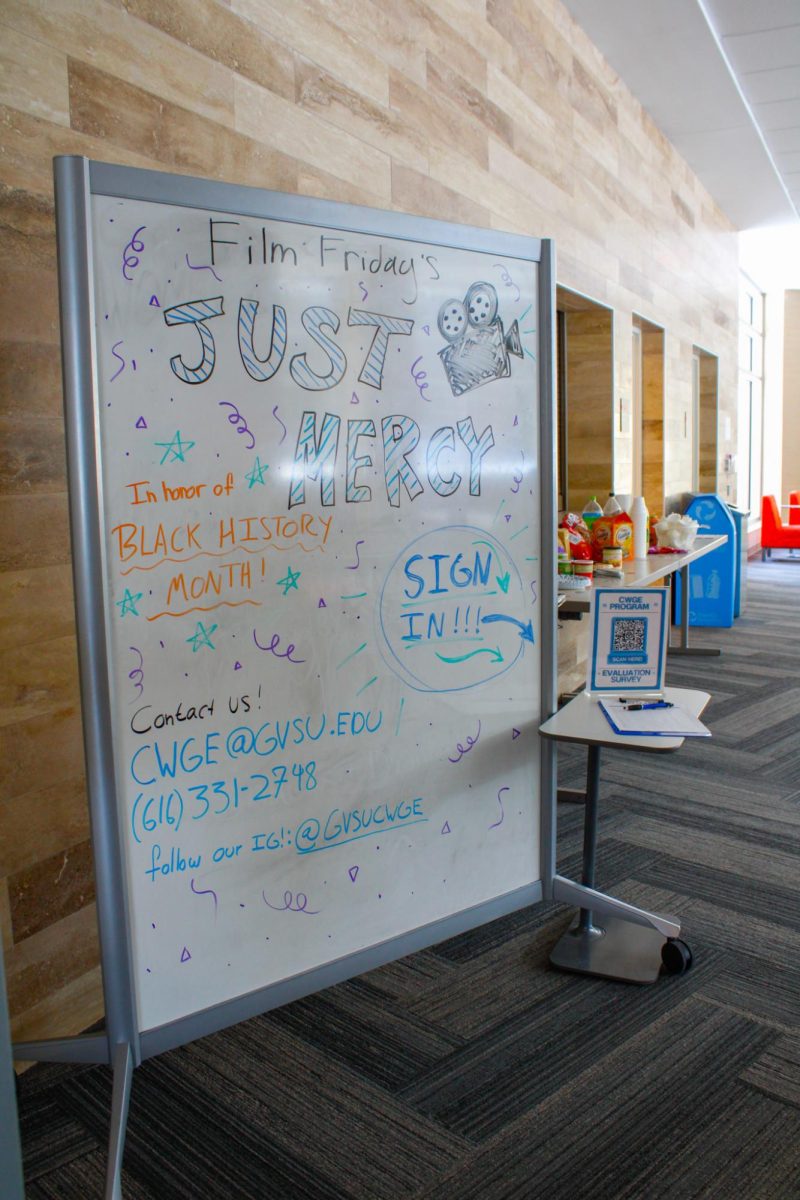In collaboration with the Grand Rapids African American Museum and Archives (GRAAMA), Reverend Robert Jones Sr. visited the Gerald R. Ford Presidential Library and Museum on Feb. 1 to perform iconic songs of healing throughout America’s history.
Deeply rooted in Black history and culture, Jones’ performance was sonically and stylistically similar to American roots music. A storyteller, musician, historian and ordained minister, Jones conveyed his knowledge of American blues and history while performing. He urged guests to not only tolerate diversity, but to embrace and celebrate it. His performance explored themes of national healing through the context of Black music, spanning from pre-slavery America to today.
This is the second consecutive year that Jones has collaborated with the Presidential Library and GRAAMA. Jones’ performance in 2023 detailed the development of guitar-based music in America.
Richard Weld, education specialist at the Presidential Library and Museum, said the museum’s partnership with Jones is invaluable to the goal of providing museumgoers with a detailed experience of Black America.
“We like having a program that provides the lens for (the type of) history that he (Jones) provides as a specialist, and as a historian and performer,” Weld said. “History is broad and diverse in America, and so if you look at it from all sorts of different angles, you (can) discover new fascinating stories. When you look at it from a new angle, you discover all these different layers of history (that) you can explore.”
George A. Bayard III, GRAAMA’s director and curator, praised Jones’ performative abilities and proficiency in music education. Bayard said he credits Jones’ extensive knowledge of Black music, ranging from blues, bluegrass and R&B, as the reason for their continued partnership.
“We were really happy to bring him (Jones) back and use his expertise to educate and entertain the crowd,” Bayard said.
Jones’ performance also included a detailed history of music’s role in various presidential efforts to heal the nation during times of upheaval. Bayard said this component of Jones’ performance is an effective demonstration of his ability to intertwine multiple elements into one cohesive piece.
“He (Jones) was able to weave in stories of the instruments, the music and presidents,” Bayard said. “Things that happened during different presidential campaigns that were based on healing–we thought (that) was such an interesting take on how he was able to explain music and the history behind it. He’s able to track the music and that is one of the things (that) as historians we think is important.”
Bayard said he was particularly satisfied with the success of Jones’ performance because it exposed more people to the historical significance of Black music, culture and history.
“You see the influence that African and African American music (has) had on other cultures, and I think that’s the most important thing,” Bayard said. “The music is all just music, but it’s important (that we know) who is playing it and how they interact with it. It’s a gift to be able to take music that started in Africa and show how it has progressed all the way up to rap music.”











